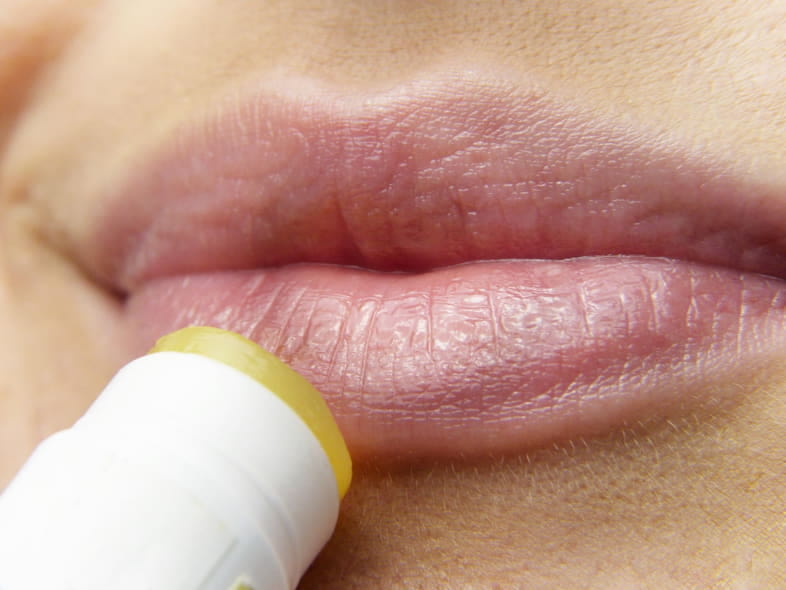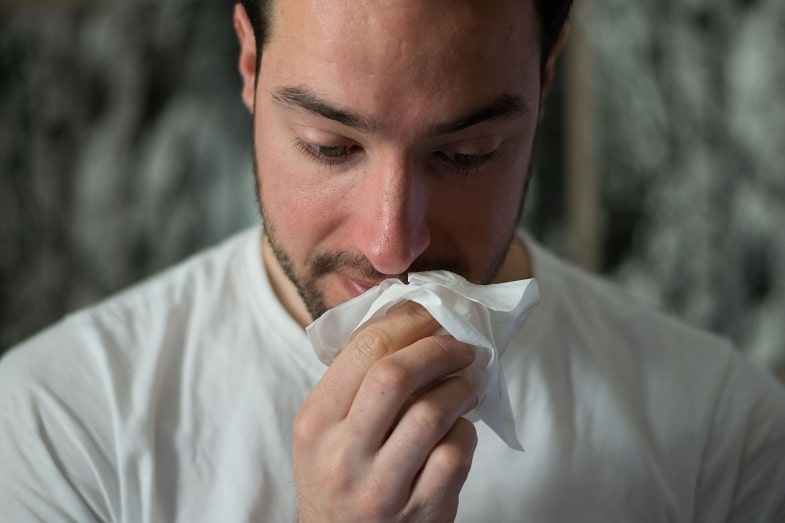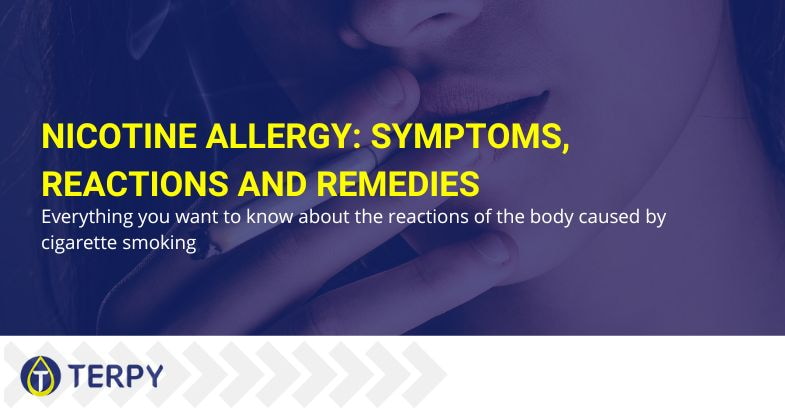Modified on: 27/05/2024
Everything you want to know about the reactions of the body caused by cigarette smoking
Smoking is bad for you, and we all agree on that. However, you probably don’t expect to experience some allergic reaction precisely because of tobacco.
Yes, nicotine allergy is not a much-discussed topic, unlike other harmful effects of cigarettes, which have been openly discussed for years.
But why do many smokers report allergic reaction symptoms related precisely to smoking?
How can you tell if you might have a nicotine allergy? What are the symptoms?
The symptoms most commonly associated with a suspected nicotine allergy are:
- sore throat
- headache;
- nausea;
- diarrhoea;
- swollen eyes;
- persistent cough;
- sinusitis;
- asthma;
- rhinitis;
- chapped lips;
- reddening of the skin.


These complaints are also associated with nicotine gum and patches to stop smoking.
But is it then a nicotine allergy?
Rather than an allergy, it tends to be defined in medical circles as an interaction with other forms of allergies. There is no such thing as a nicotine allergy per se.
What seems to occur is a kind of aggravation of the symptoms of another allergy, most likely that to nickel.
You may not be aware that tobacco – and cigarettes in particular – contain various metals, including cadmium, chromium, and, guess what, even nickel.
Even if there is no allergy to nicotine, there is nothing strange if you experience symptoms of an allergic reaction after you start smoking. During the entire period, you carry on this unhealthy habit.
Also, be aware that exposure to second-hand smoke can contribute to worsening symptoms. If you can’t avoid it, at least wear a surgical mask to limit inhalation.
But if nicotine allergy does not exist, how can I know if it is the cause of my symptoms?
As I said, there is no such thing as a nicotine allergy in medical circles, nor is it mentioned when discussing all the harmful effects it can trigger.


Very often, however, patients report symptoms typical of intolerance to some substance. If you find yourself in this situation, you might consider undergoing tests for the chemicals contained in tobacco.
The same applies if you have experienced strange reactions to the nicotine patch application. In this case, you add the possibility that it is the glue causing you problems, not the nicotine itself.
However, it is easy to find out which substance you are not tolerating well through an allergy examination and related tests.
Visit your trusted allergist – or get a recommendation from one – and explain the situation to them. He will almost certainly give you a so-called prick-test, a very useful test to find out which substances create an abnormal antibody response. That’s what it’s all about.
The doctor will draw a grid on your forearm, marking each square with a number. He will then apply drops containing the various substances to be tested, paying close attention to the correspondence between the number of the portion of skin and the substance used. At the end of the control phase, he will prick you superficially at each drop, ensuring that a small part penetrates the tissue.
Now all that remains is to wait. In the best-case scenario, you will not observe any changes in your skin. However, if one of those substances should cause you a skin reaction, it will be straightforward to realise: the corresponding square will show redness and swelling, thus revealing an allergy to the substance applied.
At this point, you have to do what you can to stay away from it!
What if the prick test does not diagnose anything, but you continue to have symptoms?
In that case, there is another condition you should consider: nicotine intoxication or overdose.
The symptoms of nicotine overdose are similar to those of the presumed allergic reaction. Specifically, they may include:
- tachycardia;
- abdominal pain;
- nausea and vomiting;
- cold;
- convulsions.
Again, intoxication could be caused by smoking, but not by the mere presence of nicotine. In fact, doctors again associate this kind of illness with intoxication caused by the chemical and toxic substances in large quantities in tobacco and even more so in cigarettes.
Also, consider that there are pathologies, such as rhinitis, which expose the patient – more sensitive – to experience this type of problem.
Some tobacco sensitivity symptoms are typically associated with nickel intoxication, such as chapped lips, swollen eyes, difficulty breathing and reddened skin. To reiterate, smoking puts our bodies in a position to assimilate large quantities of this metal, which is absorbed by the lungs and released into the bloodstream.
If you have a nickel allergy and smoke, you are probably wondering to what extent you can continue to do so without intoxicating your body.
In light of what you have just read, you indeed imagine that considering quitting smoking is undoubtedly the best choice to make to safeguard your health.
Quitting smoking, however – and anyone who has tried it knows this – is not only a decision to be made but, above all, to be maintained. It is not easy, and the temptations can be many. A beer with friends, coffee that naturally draws in nicotine…in short, it’s not always a walk in the park.
There are some things, however, that you can do at least to reduce your exposure to smoking while waiting to quit altogether.
Read also: Nicotine and dopamine: what these two substances are and how they interact with each other
How can I reduce my nicotine exposure?
The best thing you can do is, without a doubt, to try to quit smoking. Even if you fail, you will certainly reduce the amount of nicotine and nickel circulating in your body. However, if you achieve your goal, you will be glad you did!
Secondly, you can try to limit the situations that cause you to want to smoke. By this, I also mean not overdoing the ingestion of substances that tend to activate the demand for nicotine in you, such as alcohol and coffee.
You could also avoid situations where there is a lot of exposure to second-hand smoke that might make you want to light up a cigarette.
Last but not least, I want to tell you that smoking considerably weakens your immune system. This is why it would be a good idea for you to think about giving it a hand by taking care of yourself and your well-being: consider starting to exercise – if you don’t already do so -, and pay attention to the quality of your sleep (including quantity) and make sure you eat a healthy, varied and balanced diet.
In conclusion, what do we know about nicotine allergy?
Talking about nicotine allergy refers to the reaction that smoking causes in the body.
The symptoms of such a reaction are often very similar to allergic responses, despite the fact that medicine tells us that nicotine allergy does not exist in reality.
What happens then?
The explanation for the discomfort experienced in connection with cigarette smoke lies in the chemical and metal components contained in large quantities in tobacco itself.
Limiting smoking exposure can undoubtedly be a solution, although quitting would be ideal.
If you want to get rid of the smoking habit, but can’t manage it on your own, try vaping: enter Terpy, Europe’s number 1 vape shop, choose your new device, and buy the best e-cigarette liquids.
We are waiting for you on Terpy!





